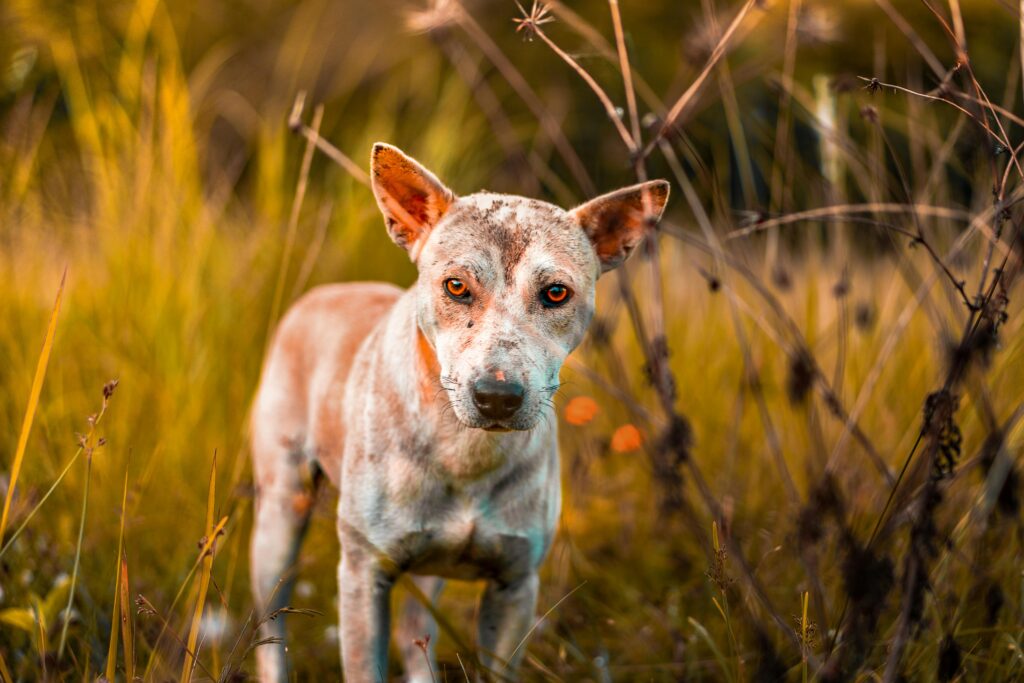Is your pup constantly scratching? It’s no fun watching your best friend be uncomfortable. Believe it or not, what your dog eats can make a big difference in how their skin feels. Just like us, dogs need the right nutrients to keep their skin healthy and happy. Certain foods can help soothe itchy skin and even prevent flare-ups. It’s like giving your dog a natural itch-relief treatment from the inside out. We’ll dive into the details of which foods are good for their skin and how to choose the best dog food for itchy skin. Let’s get started!
Thank you for reading this post, don't forget to subscribe!Understanding Itchy Skin in Dogs

It can be heartbreaking to watch your furry friend constantly scratch. Believe it or not, there are lots of reasons why your dog might be itching. It could be something simple like dry skin or a pesky flea, but it could also be something more serious like an allergy or infection. Hence, it’s important to figure out what’s causing the itch before you start treating it. A quick trip to the vet can help narrow down the problem and get you on the right track to helping your pup feel better.
While diet can help with some types of itchy skin, it’s not a magic cure-all. Let’s talk about how food can help, but remember, it’s always a good idea to check with your vet first.
The Role of Diet in Managing Itchy Skin
While diet alone may not always resolve itchy skin issues in dogs, providing a balanced, nutritious diet can support overall skin health and may help alleviate symptoms in some cases. The key is to focus on foods that contain ingredients known for their anti-inflammatory properties, promote skin hydration, and support a healthy immune system.
Best Dog Food for Itchy Skin Relief
- Omega-3 Fatty Acids: These essential fatty acids are renowned for their anti-inflammatory properties. They help reduce skin inflammation, alleviate itching, and promote a healthy coat. Rich sources include fatty fish like salmon, flaxseed oil, and chia seeds.
- Omega-6 Fatty Acids: While often overshadowed by omega-3s, omega-6 fatty acids are also important for skin health. However, the balance between omega-3 and omega-6 is crucial. Excessive omega-6 intake can contribute to inflammation
- Zinc: This mineral is essential for skin cell growth and repair. It helps maintain the skin’s barrier function, preventing moisture loss and irritants from penetrating.
- Biotin: Also known as vitamin B7, biotin is involved in the production of keratin, a protein that strengthens hair and nails. It can help improve skin and coat condition.
- Vitamins A and E: These antioxidants protect skin cells from damage and support the skin’s natural repair process.
Choosing the Right Dog Food for Itchy Skin
- High-Quality Protein: Opt for dog foods with easily digestible, high-quality protein sources such as chicken, turkey, or fish. Avoid low-quality ingredients and by-products.
- Limited Ingredient Diets: If your dog has food allergies or sensitivities, a limited ingredient diet can help identify and eliminate potential triggers. These diets typically contain a single protein source and a limited number of carbohydrates.
- Hydrolyzed Protein: For dogs with severe food allergies, hydrolyzed protein is a good option. The protein is broken down into smaller peptides, reducing the likelihood of an allergic reaction.
- Grain-Free or Grain-Inclusive: The grain-free diet trend has been debated. While some dogs may benefit from grain-free options, others may tolerate grains well. The best choice depends on your dog’s individual needs and sensitivities.
- Avoid Common Allergens: Some dogs may have sensitivities to common allergens like beef, dairy, wheat, corn, or soy. If you suspect an allergy, consider a diet that excludes these ingredients.
Additional Dietary Considerations
- Probiotics and Prebiotics: These beneficial bacteria and fibers support gut health, which can indirectly improve skin condition.
- Hydration: Ensure your dog has access to fresh water at all times. Proper hydration is essential for healthy skin.
- Homemade Diets: If you opt for a homemade diet, consult with a veterinarian or veterinary nutritionist to ensure it meets your dog’s nutritional needs.
Conclusion
While diet alone may not always be a cure-all for itchy skin in dogs, providing a balanced, nutritious diet can support overall skin health and may help alleviate symptoms in some cases. By incorporating anti-inflammatory foods, protein-rich ingredients, limited ingredient diets, antioxidant-rich foods, and hydrating ingredients into your dog’s diet, you can soothe and nourish their skin from the inside out. Remember to consult your veterinarian for personalized recommendations and guidance on managing your dog’s itchy skin effectively. With the right diet and care, you can help your furry friend find relief from itching and enjoy a happier, healthier life.
